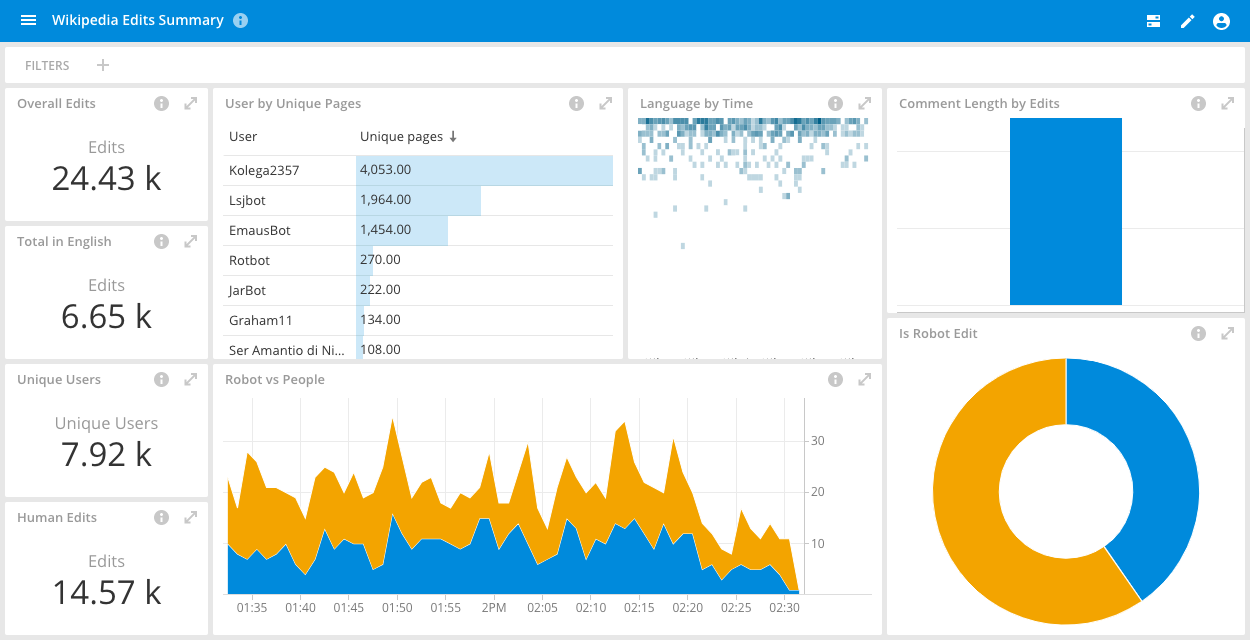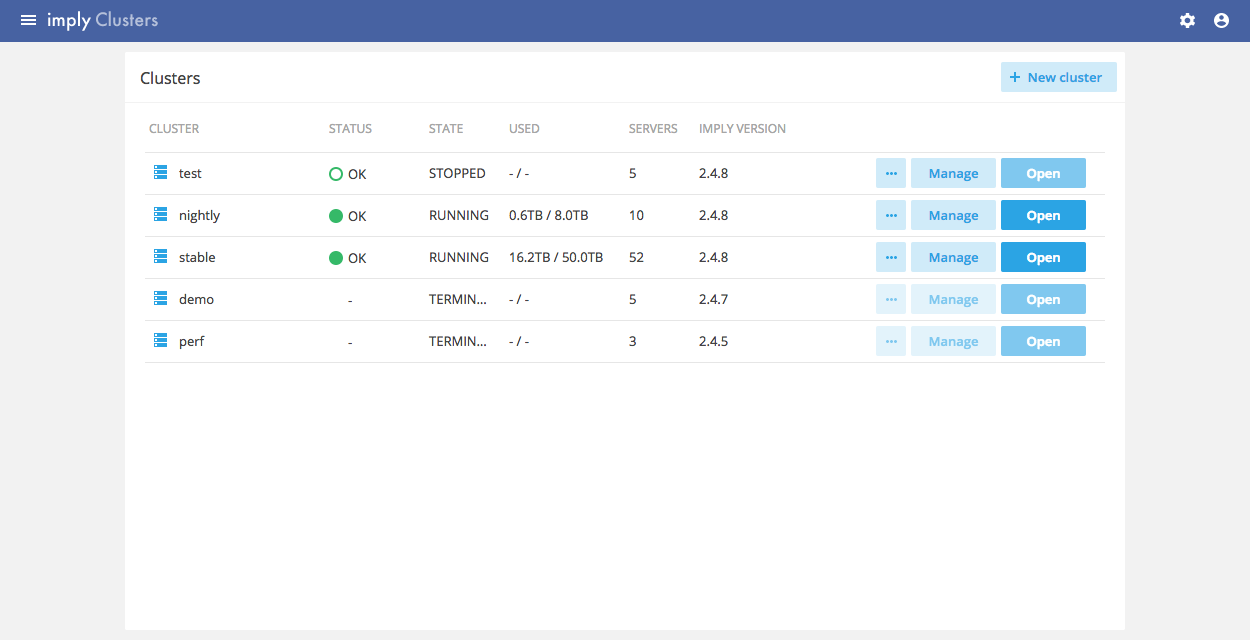Imply Overview
Imply is a self-service analytics platform that gives users powerful visualization, management, monitoring, and security components. With Druid at its core, Imply powers real-time analytic workloads for event-driven data, making that data accessible and useful to more people in your organization.
If you are new to Imply, the easiest way to get started is by following the quickstart.
Use cases
Common application areas for Imply include:
- Clickstream analytics (web and mobile analytics)
- Risk/fraud analysis
- Network telemetry analytics (network performance monitoring)
- Server metrics storage
- Supply chain analytics (manufacturing metrics)
- Application performance metrics
- Business intelligence / OLAP
For more information on use cases, see Imply Solutions.
Imply components
Imply consists of these primary components:
Druid
Apache Druid is the high performance, real-time analytics database at the core of Imply.
Pivot
Pivot is an easy-to-use, visual interface for exploring and analyzing real-time data.

Imply Manager
Imply Manager serves as the central administration point where you can deploy clusters and administer the system:

Imply Clarity
Imply Clarity is a performance monitoring tool for the platform
Deployment options
You can deploy Imply in the following ways:
-
Imply Polaris: a fully managed Imply stack in the cloud.
-
Imply Enterprise Hybrid (formerly known as Imply Cloud) where the Imply team hosts the control plane, including the Imply Manager, and deploys EC2 instances in a separate VPC in your AWS account for the data plane components, including Druid. You own the hardware and the data. Imply Enterprise Hybrid eases cluster deployment, management, and scaling, and is the recommended way to install our software.
-
Imply Enterprise (formerly known as Imply Private) where you install and host all components of the Imply stack, including the Imply Manager. Imply Enterprise provides various installation options, including Kubernetes- and cloud-based options.
For more information, see planning information.